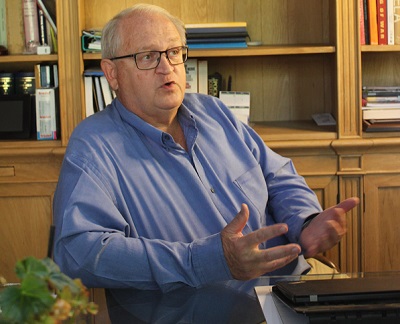

Director: Corporate-911
Like many economies around the world, South Africa is facing a period of low growth with a recession now very likely in Africa’s most diversified economy. And Government has very little answers about how to address this.
However, this is not news for any of us. South Africa’s economic troubles existed long before the current tough economic climate, and even before Covid. In 2018 and 2019, four of the world’s fastest growing economies were African economies. Meanwhile, South Africa battled a growing unemployment crisis and the early stages of what is now a rapidly worsening energy crisis.
Respondents to the 2023 Deloitte Restructuring Survey pointed out that lenders and creditors expect an increase in financial distress over the next 12 to 18 months. Figures from Statistics South Africa (Stats SA) points out that there was an increase in liquidations in 2022.
The report highlights small and medium enterprise (SME) market data and the plight of these companies. These companies typically sink faster and deeper into distress after living month-to-month, leaving little to no room on the balance sheet to opt for any alternative other than liquidation. It is also safe to assume that many of these companies waited too long to act, making a reasonable prospect of rescue improbable and leaving them with liquidation as the only outcome.
Do we need to revisit the National Planning Framework?
In the beginning
At the commencement of Cyril Ramaphosa’ s term as the country’s president, the National Planning Committee launched a restructuring framework to drive growth and job creation. This was built around the following pillars:
- reforms in the electricity sector which will
- stabilise our energy supply,reduce the risk of load shedding, and
- accelerate the transition to renewable energy sources;
- reforms in the digital communications sector which will
- reduce the cost of data and broadband, expand internet access to low-income households, and
- unlock new investment in telecommunications infrastructure;
- reforms in the water sector which aims to increase investment in the maintenance and construction of water infrastructure and improve water quality;
- reforms in the transport sector which aims to
- improve the efficiency of South Africa’s logistics infrastructure and
- help to grow exports; and
- reforms to the visa regime which aims to attract skills and promote tourism in South Africa.

Image By: Benita Welter from Pixabay
Urgent review
In each of the subsets of the plan, failures are more readily identified than any real progress. This points to the lack of implementation and accountability.
After Covid and the current inflationary fire storm, we need to add some other imperatives to this list. These include:
- revitalising mining and prospecting to replace declining reserves;
- improving downstream mineral beneficiation to grow the green economy;
- revitalising our tourism, hospitality and travel sectors (which took a massive knock during Covid); and
- revitalising local manufacturing to take advantage on new manufacturing techniques and markets such as electric vehicles and the renewed focused on more localised supply chains in manufacturing.
The time for Government small talk is over
These sectors are also the primary areas where restructuring and turnaround opportunities are present. Further, they are also areas where large State Owned Entities operate. While President Ramaphosa has indicated that private companies will play an increased role in driving future economic development of South Africa, the majority of this burden still rests with Eskom and Transnet.
The recent rhetoric provided by Government and Eskom, that South Africa will be facing a tough winter when it comes to loadshedding, is devastating news for an ailing economy. It is important that Government gets serious about the development of the hydrogen economy. Not only will it provide Eskom with a more stable energy source, reports indicate that indicate that job creation opportunities from projects in the Hydrogen Valley will create about 14 000 (low case) to 32 000 (high case) jobs per year by 2030, should the full vision of the project be realized. In addition, South Africa has the potential to be a net exporter for hydrogen energy. Like the current European demand for our coal, there will be significant demand for South African hydrogen.
Transnet is another beast altogether. Hopefully, the announcements that it intends to embark on a privatisation programme means that the company will eventually invest in systems and processes that will improve the company’s performance. Pravin Gordhan, the Minister of Public Enterprises, is currently visiting China. This visit is crucial to unblock the impasse caused by the locomotive debacle and the lack of spares and supplies to deal with the backlogs in logistics.
That leaves the South African Broadcasting Corporation and Sentech. Major decisions need to be made about the future of these companies. PRASA and major SOEs will also have a real role to play in the revitalisation of our economy.

Image By: fancycrave1 from Pixabay
Move beyond a culture of Government indecision
All of these sectors need both political and business leadership. Not surprisingly they are also the sectors attracting the most attention in our news stories and social commentaries. Depressingly they are also sectors that have received the most scrutiny in fraud and corruption cases.
Hopefully in the coming months we will see serious political parties engaging with fixing the real economy to grow the resources to deliver the social reforms that are fundamental to political stability and prosperity. This will require Government to get serious about reform and actually put in the hard work to address the challenges that are currently damaging our economy.
Indecision cannot be embraced. To quote James Carville (Former US President Bill Clintons strategist) is his defeat of George W Bush: it’s the economy, stupid. Government needs to step up.
Robin Nicholson is the Director of Corporate-911 and is a Senior Business Rescue Practitioner




